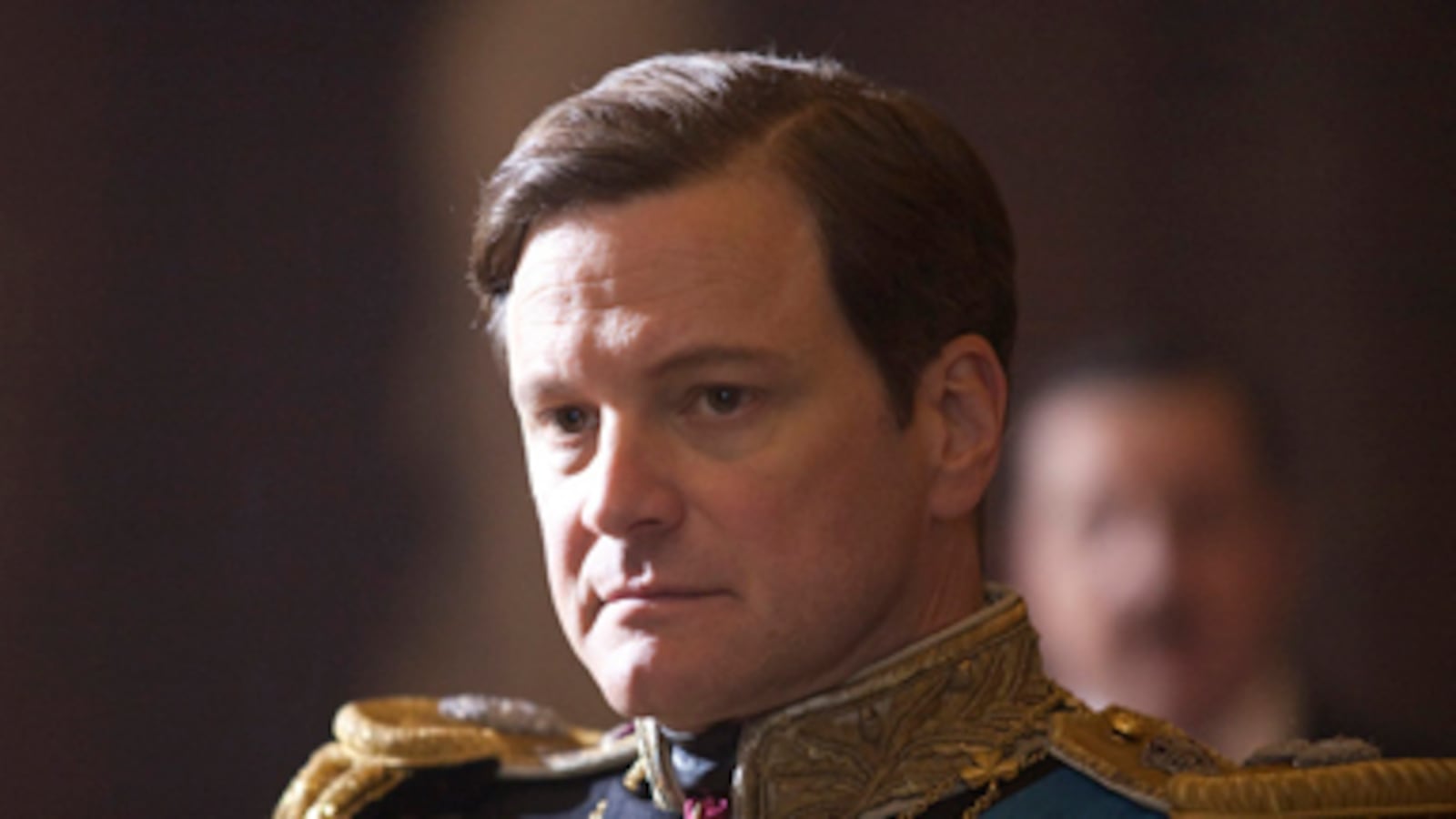The King’s Speech may get some historical details wrong, but it’s spot on when it comes to its central point: the closeness of the friendship between King George VI and his unconventional Australian speech therapist
On February 28, 1952, just over three weeks after King George VI of England died, at age 56, his grieving widow, Elizabeth, took out her fountain pen and some sheets of Buckingham Palace notepaper and began to write to an old friend. “I know perhaps better than anyone just how much you helped the king, not only with his speech, but through that his whole life & outlook on life," she wrote. "I shall always be deeply grateful to you for all you did for him."
The recipient of her letter was Lionel Logue, an Australian in his early 70s, who was also, as it turned out, close to the end of his life. Over the previous quarter of a century, this publican’s son from Adelaide, without a formal qualification to his name, had come to occupy an extraordinary position within the inner circle of King George, father of the present queen, not just as a speech therapist, but also as a friend.
The relationship between the two men is at the heart of the film The King’s Speech, which went on selected release at theaters in the U.S. over Thanksgiving weekend and will be shown elsewhere in the country over the coming weeks. After delighting critics at film festivals from Toronto to London, the film, starring Colin Firth as the king—or Bertie as he was always known to his intimates—and Geoffrey Rush as Logue, appears destined to be rewarded by the Academy in February.
Among the critics’ plaudits, however, there have been some notes of dissent—from, among others, Andrew Roberts, the respected British historian, writing last week here on The Daily Beast. Although gorgeously produced, he says, the film as history “is worthless because of its addiction to long-exploded myths.”
When the king made a speech on the evening of September 3, 1939, the day Britain declared war on Germany, he asked Logue to go through it with him first.

Roberts is right to point out that Tom Hooper, the director, has tinkered with some of the basic facts, such as having Winston Churchill back the abdication of Edward VIII, which put a reluctant Bertie onto the throne in December 1936, whereas Churchill instead spoke out in favor of Edward and his romance with Wallis Simpson. But then this never claimed to be a documentary.
When it comes to the debt owed by King George to Logue, though, Hooper's film is spot on—as became clear to me going through hundreds of diary entries, letters, and other documents that form the basis for the book The King’s Speech: How One Man Saved the British Monarchy, which I have written with Logue’s grandson, Mark, and is being published to coincide with the release of the film.
The two men first met in 1926, when Bertie went to consult Logue in the dingy set of rooms at the cheap end of Harley Street in the heart of Britain’s medical establishment that he had rented after arriving, virtually penniless, with his wife and three sons on the boat from Australia two years earlier.
Bertie was badly in need of help. He had began to stammer at the age of 8—the letter ‘k’ (as in king) proved a particular challenge—and his condition worsened after he was created Duke of York in 1920 and had to take on official engagements. A major speech in front of thousands of people at the British Empire exhibition in Wembley in May 1925—which forms the starting point of the film—proved a particular humiliation. And he soon faced the grueling prospect of a major six-month tour of New Zealand and Australia.
The duke had already seen his fill of “experts,” but no one had been able to cure him. He was persuaded to have one last try by his glamorous young wife, Elizabeth, better remembered today as the queen mother (played in the film by Helena Bonham Carter). "I can cure you," Logue declared after they had spent an hour and a half together. "But it will need a tremendous effort by you. Without that effort, it can't be done."
Bertie certainly put in the required effort—but this was no quick fix. Indeed, despite weekly sessions with Logue, coupled with a rigorous program of exercises, he continued to consult the Australian for the rest of life. In the process the two men became close—even though, judging by the tone of their letters, the real-life Logue was somewhat more deferential toward his pupil than his on-screen depiction.
Their relationship intensified after Bertie became king. His stammer, as Roberts asserts, may not have been as bad in reality as in the movie, but it remained a major preoccupation—otherwise why would he have had several one-to-one sessions with Logue in the run-up to his coronation in May 1937? And why would he have insisted on his therapist joining the royal family for Christmas lunch at Sandringham so he could help prepare a broadcast to the empire that afternoon—and in subsequent Christmases?
Logue’s own diary entries show how much of a strain the king still found public speaking. One rehearsal on May 6, six days before the coronation, went especially badly: According to Logue’s account, the king became almost hysterical, although the queen managed to calm him down, “He is a good fellow,” Logue wrote of the king, “and only wants careful handling.”
• Andrew Roberts: The King Who Couldn’t SpeakWhen the king made a speech on the evening of September 3, 1939, the day Britain declared war on Germany, he asked Logue to go through it with him first. We know that because an annotated copy—showing Bertie where to pause and breathe—was among Logue’s papers.
Just over a year later, when the king was practicing his speech for that year's State Opening of Parliament, he greeted Logue grinning like a schoolboy. "Logue, I've got the jitters," he declared. "I woke up at 1 o'clock after dreaming I was in parliament with my mouth wide open and couldn't say a word." Although both men laughed heartily, it brought home to Logue that even now, after all the years they had spent working together, the king's speech impediment still weighed heavily on him.
And so it went on through the war years, until a few days before Christmas 1944, when the king finally felt confident enough to deliver his message without Logue by his side. The broadcast went well. Logue, listening at home in London, with friends, rang the king immediately afterward to congratulate him. “My job is over, sir,” he declared. “Not at all,” the king replied. “It is the preliminary work that counts, and that is where you are indispensable.”
Peter Conradi is a journalist with The Sunday Times of London. Read more about the book at www-the-kings-speech.com






